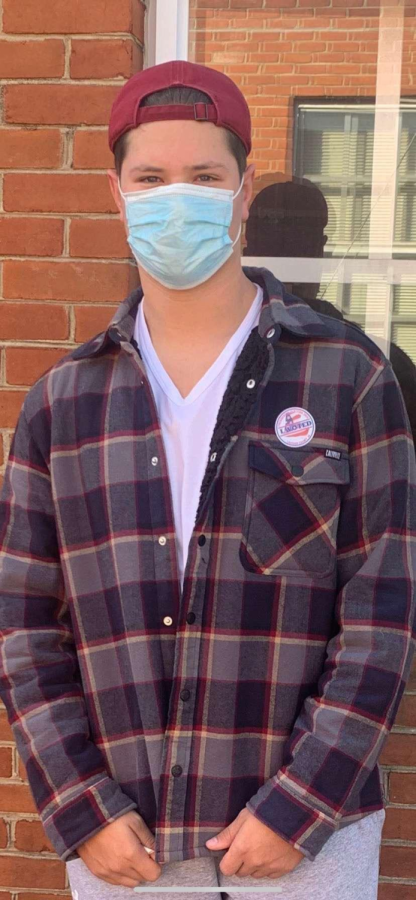The Youth’s Lack of Voting Knowledge
First time voter, Daniel Pavolic gets his picture taken by his mother in front of his voting location.
January 13, 2021
Young voters made up 52-55% of voting in the 2020 election, however, the youth has little to no knowledge about voting locations or critical questions. Yes, there could be more effort to advertise youth voting in highschools and universities but would the youth start paying the slightest attention? It’s not about how many reposts or likes a “go vote” post can get in order for others to see it and pay attention. It’s about wanting to cast a vote or wanting to have a say in who becomes a significant leader in our country’s politics. The two main reasons the youth are not voting is mainly because they don’t care or have no idea what they are voting for.
The young voters tend to lean towards the opinions and political party of their parents. They hear conversations from family and side with the people they are around the most. Woodgrove Senior, Daniel Pavolic says, “I had a difficult time understanding the questions being asked on the ballot, which led me to write random yes and no’s. I went with my mother to our voting location at Waterford Elementary because I was nervous on how the process went, so I thought it would be smart to go with someone experienced.”
Why are youth voting percentages low? Karen Turner says, “The reality is that most young people are neither apathetic nor ideologically disengaged. They aren’t turning out to vote because their lives are not set up for it. Young people don’t flock to the poll like older Americans do. In 2016, only 46 percent of 18- to 29-year-olds voted, compared to 71 percent of those over 65; in 2012, those numbers were pretty much the same,” says Turner.
Voter turnout and informed voters in 2020 emphasizes the importance of reaching out to the young generational voters while being homebound. While mail in ballots makes it easier and more convenient to vote, and the information may be at young voters’ fingertips, it’s hard to get motivated to actually pursue the information needed. Young voters are critical, since voting tends to be a habit; starting early leads to a continuation of voting in the future. Universities and high chools discussing proper information about elections and voting will impact young voters’ political involvement.
Youth voting isn’t where it should be because of multiple reasons. Young people are attending college, have jobs that often don’t have flexible schedules, have no access to transportation, or generally don’t pay attention to register. Youth’s busy lifestyle leads them to think about the future such as jobs, keeping up with their education, and primarily where they will end up not so much about who they will vote for in the upcoming election. Freshman in college, Ethan Dezarn gives his reason as to why he didn’t vote in the 2020 election. “I didn’t vote because I don’t think it matters who the president is at this stage in my life. The president is not going to change how I live my life or what I do on a daily basis. I will most likely vote next election because I do think I’ll have more of a say, being older and having more adult-like responsibilities,” says Dezarn.
There was a steady amount of advertising done in the 2020 election on both social media and the news, however there was not a significant change in youth voting numbers. The lack of promoting isn’t a problem, rather it’s simply that young individuals chose not to vote.



